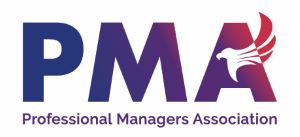

Dear Chairmen Smith and Wyden, and Ranking Members Neal and Crapo:
On behalf of the Professional Managers Association–the non-profit professional association that has, since 1981, represented professional managers, management officials, and non-bargaining nit employees at the Internal Revenue Service (IRS)–I write to express our concern that the tax
law changes Congress is currently considering cannot be implemented this filing season without considerable delay, misunderstanding, and waste. Ultimately, we worry this will frustrate and confuse taxpayers more than it will benefit them this year and will diminish trust in the IRS.
It is the job of Congress to set the tax law for the nation. Whether it is expanding tax breaks or increasing rates, PMA has no position on these policy changes and understands it is within Congress’s prerogative to make these changes. However, it is the job of the IRS to implement these laws, and the IRS and its watchdogs have repeatedly made clear that it cannot implement tax law changes effectively that are enacted by Congress just before or during a filing season.
We understand that lawmakers wish to provide the American people additional tax breaks ahead of filing their 2023 taxes; however, Congress must understand the tradeoff that will occur if it passes these tax law changes now.
First, the IRS has already invested significant time and attention in preparing documents for this filing season–which begins in less than three weeks. If Congress changes the tax law, all this work must be redone. This will inevitably mean substantive work is delayed and the American people could receive their refunds later than excepted.
Second, thousands of seasonal and permanent IRS employees have already undergone training on the tax law. This training enables them to answer taxpayer questions and process returns correctly. Retraining these employees risks confusion, mistakes, and ultimately, a more frustrating experience for taxpayers. The tax practitioner community would be similarly burdened with having to re-educate themselves on the tax law to provide effective advice.
Finally, if Congress changes the tax law, IRS employees will–as always–do everything in their power to do what the law commands. To do so, IRS employees will need to pause their ongoing work for the filing season and long-term modernization initiatives to implement these changes, again causing delay and waste. Each year the IRS is unable to move forward with its modernization goals, it is forced to rely on programs, procedures, and equipment that costs taxpayers more to operate.
Finally, it is worth noting that the IRS is still not appropriated for FY 2024. There is a very real possibility of a government shutdown less than two weeks into the filing season. This will only exacerbate these inefficiencies and make it all the more difficult to effectively implement these changes. Congress should not be imposing additional burdens on agencies when it has not yet determined how to fund them.
We are far from the first to raise this concern. In October 2023, the Treasury Inspector General for Tax Administration (TIGTA) issued a report on major challenges to consider in 2024. ‘Tax law changes’ was the second major challenge. TIGTA found:
“One of the continuing challenges that the IRS faces each year in processing tax returns is the implementation of new tax law changes as well as changes resulting from expired tax provisions. Legislative actions generating the changes often occur late in the year, shortly before the filing season begins… The implementation of significant legislative mandates will continue to be a challenge for the IRS to address when preparing for the processing of tax returns during future filing seasons.”
“For example, the IRA contains 36 tax provisions that affect individual and business taxpayers. Twenty of these tax provisions required the IRS to implement changes related to tax return processing for Processing Year 2023. This required the IRS to create or revise tax forms, instructions, and publications; update computer programming to process tax returns affected by the provisions; and communicate and provide guidance to taxpayers and tax professionals on the tax law changes.”
Similarly, in testimony before the House Ways & Means Committee in 2022, one of the National Taxpayer Advocate’s principal recommendations for Congress was to “refrain from making changes to the Internal Revenue Code just before, and particularly during, the filing season.” The Taxpayer Advocate explained:
“In the past, Congress has made changes to the Internal Revenue Code in December. Last minute tax law changes create administrability challenges for the IRS and tax software companies, and confusion for taxpayers and tax return preparers. When a law is changed, the IRS must re-program its processing systems to accommodate the change, sometimes leading to delays in the start of the filing season, and tax software companies must update their software, so taxpayers and tax return preparers get the right results. In 2007, the National Taxpayer Advocate’s Annual Report to Congress designated the impact of late year tax law changes as the #1 most serious problem facing taxpayers.”
We encourage Congress to work in a bipartisan fashion to determine the best tax laws for taxpayers. PMA applauds Congress for coming together to work on a deal that supports American families in a way it sees fits. However, this deal could have been done three months ago or it could go into effect next year. It is too late for 2023 taxes. Enacting changes to the tax law three weeks before tax season begins and four weeks before a potential shutdown is infeasible and will burden the IRS and American taxpayers far more than it will help them.
The 2023 filing season was one of the most successful in recent memory, and IRS employees are eager to continue raising the bar for the American people in 2024.
Thank you for your consideration of PMA’s perspective. Please contact PMA Washington Representative Jason Briefel (jbriefel@shawbransford.com) to schedule a meeting to discuss this issue.
Sincerely,
Kelly Reyes
Executive Director
Professional Managers Association